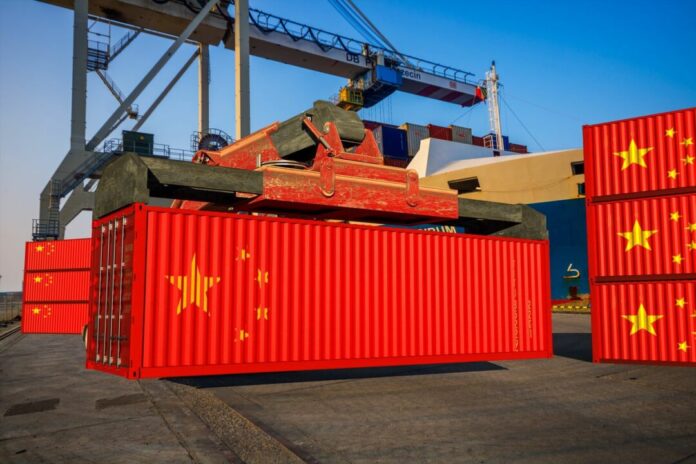BEIJING: China will suspend its 24% additional tariff on U.S. goods for one year but retain a 10% levy, the State Council’s tariff commission said on Wednesday, following last week’s meeting between President Xi Jinping and U.S. President Donald Trump.
The commission also announced China, the world’s top agricultural buyer, will lift some tariffs of up to 15% on U.S. agricultural goods from November 10.
Premier Li Qiang said on Wednesday that China’s economy will exceed 170 trillion yuan ($23.87 trillion) by 2030, presenting a big market opportunity for the world as trade restrictions rise globally.
In his speech at the opening ceremony of the China International Import Expo (CIIE) in Shanghai, Li criticised tariffs and said that China wanted to reform the global economic trading system to make it more reasonable and transparent, especially for developing countries.
Tariffs are “seriously undermining international economic and trade rules, and also disrupting the normal operation of enterprises in various countries,” he said, without mentioning the United States.
“In five years, China’s economy is expected to exceed 170 trillion yuan, which will make new and important contributions to global economic growth,” Li added.
China has said its GDP will top 140 trillion yuan this year, and the projection by 2030 is in line with proposals for its upcoming five-year plan that predicted annual growth of 4.17% over the next five years.
CIIE was launched under President Xi Jinping in 2018 to promote China’s free trade credentials and counter criticism of its trade surplus with many countries.
But the expo has its sceptics, as the country’s trade surpluses with other markets have only grown in the years since.
While China’s supply of manufactured goods to the world is growing, its contribution to global demand is less significant, with imports barely growing – a dynamic economists have said fuels trade tension abroad and deflationary pressure back home.
Global trade this year has been heavily disrupted by tariffs imposed by U.S. President Donald Trump and have launched the U.S. and China into a fresh trade war that has ebbed and flowed in tit-for-tat actions through this year.
Last week, Xi and U.S. President Donald Trump met in South Korea to reach a trade truce. The U.S. agreed to reduce some tariffs on Chinese goods and pause some export controls, and China agreed to pause new export restrictions on rare earth minerals and magnets and resume purchases of American soybeans.
But analysts say it may be no more than a fragile truce in a trade war with root causes still unresolved.




